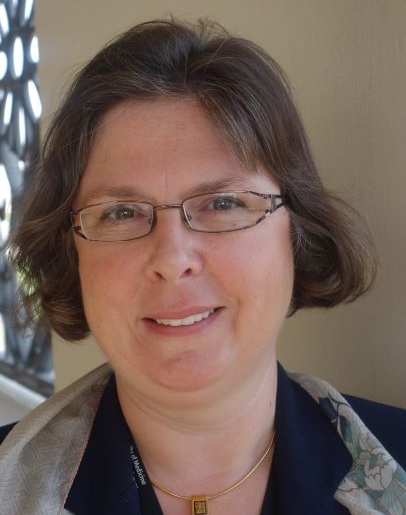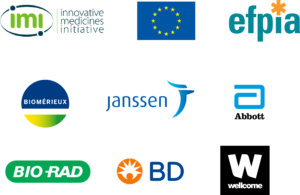AMR expert interview with Dr. Agnes Sonnevend
/in Interviews/by Kristof VanmunsterCan you introduce yourself and tell us about your role in the AMR field?
I am Agnes Sonnevend, head of the Diagnostic Microbiology Services at University of Pécs University Hospital in Hungary, which has over 1400 beds. We treat patients in the fields of haematology, oncology, solid organ transplantation, both children and adults. Previously, I did research in the Middle East on antimicrobial resistant bacteria, mostly gram-negatives, and molecular epidemiology. I’m continuing this work in Hungary with the help of my PhD-students and colleagues. I am also part of the National Antimicrobial Resistance Testing Committee, which aims to improve the overall quality of antimicrobial susceptibility testing in Hungary and adhere to the EUCAST.
What are some challenges that you are currently facing?
In the committee, we are currently discussing selective reporting and whether or not to suppress certain antibiotics to decrease their use in outpatient settings. There is also a debate ongoing about accidentally discovered multidrug-resistant organism carriers. In my opinion, this is a pressing issue and we need to figure out how to approach it.
Why should people be concerned about AMR?
The most important aspect of AMR is that it’s not only a current problem, but it will also gravely affect generations to come. In Europe, antibiotics are not over-the-counter available, however, in most other parts of the world this unfortunately is the case. This means that a lot of people take antibiotics even if they have a simple cold or hay fever. Doctors also need to be selective when it comes to prescribing antibiotics and think about future patients who will potentially need antibiotics for more serious infections. If the widespread over-use of antibiotics continues, then our children and the future generations will not be able to take effective antibiotics. Even simple infections could become life-threatening.
What is the expected impact of the work you’re doing?
At the Diagnostic Microbiology Services of the University Hospital, we perform molecular testing for multi-resistant organisms, often genome-sequence based. In this case, it’s easier to pinpoint connections and determine the necessary actions to be taken. Thanks to this, our hospital is able to handle antimicrobial resistance well. I advocate for providing funding to all hospitals so that they can perform this testing as well. Our National Center of Epidemiology carries out these tests, but the turnover time is long. When hospitals can do these tests immediately themselves, actions can be taken faster in order to control hospital infections.
One of the aims of VALUE-Dx is to demonstrate the value of diagnostics to change the antibiotics prescribing behaviour. Can you comment on this?
During the COVID-19 pandemic, we used syndrome-based molecular tests to quickly diagnose intensive care patients and determine whether COVID is the cause of their deteriorating lung function or a superinfection, for example. The use of diagnostics definitely contributed to controlling antibiotic prescribing during this time. Running molecular tests can be very helpful for ICU physicians who oftentimes have to make quick decisions.
In regards to AMR, what’s the current situation in your country?
In Hungary, there are a lot of cases of multidrug-resistant bacteria called Acinetobacter. Luckily in Pécs, the situation is under control, on average we only have about 10 to 12 cases per year. Due to the Ukrainian refugees, there is also a rising problem of carbapenem-resistant Klebsiella in the East of the country which is slowly spreading to the centre of Hungary. These are not the only resistance issues we face, so there is a strong need to further take serious infection control measures, and other actions, i.e. broadening the use of antimicrobial stewardship.
Are there any antibiotic resistance awareness campaigns towards the general public?
Only during the World Antibiotic Awareness Week in November each year, but besides that no. There is still a lot of work to be done when it comes to educating the general public. However, another important factor is convincing insurance companies and national bodies to provide financing for diagnostic testing. In most cases, these tests cost more than running the actual antibiotic course. Governments should promote the use of point-of-care tests, which are available and quick, and benefit the antibiotic prescribing rates. If diagnostics can be done more accurately, this will also have a positive effect on the stay of patients in the ICU. Hospital management should become more aware of this.
-
About
Agnes Sonnevend
Agnes Sonnevend MD, PhD is an associate professor and consultant clinical microbiologist at the Department of Medical Microbiology and Immunology, Pecs University Medical School. She is the Head of Laboratory of Diagnostic Microbiology and Hospital Hygiene. Dr. Sonnevend’s main research areas are the molecular epidemiology of various multi-drug resistant organisms, the emergence and spread of such organisms, with special focus on plasmid and transposon mediated horizontal gene transfer of resistant determinants in Gram-negative bacteria, e.g. Enterobacterales, Acinetobacter baumannii and other non-fermenters isolated from clinical samples as well as from the environment and livestock.



